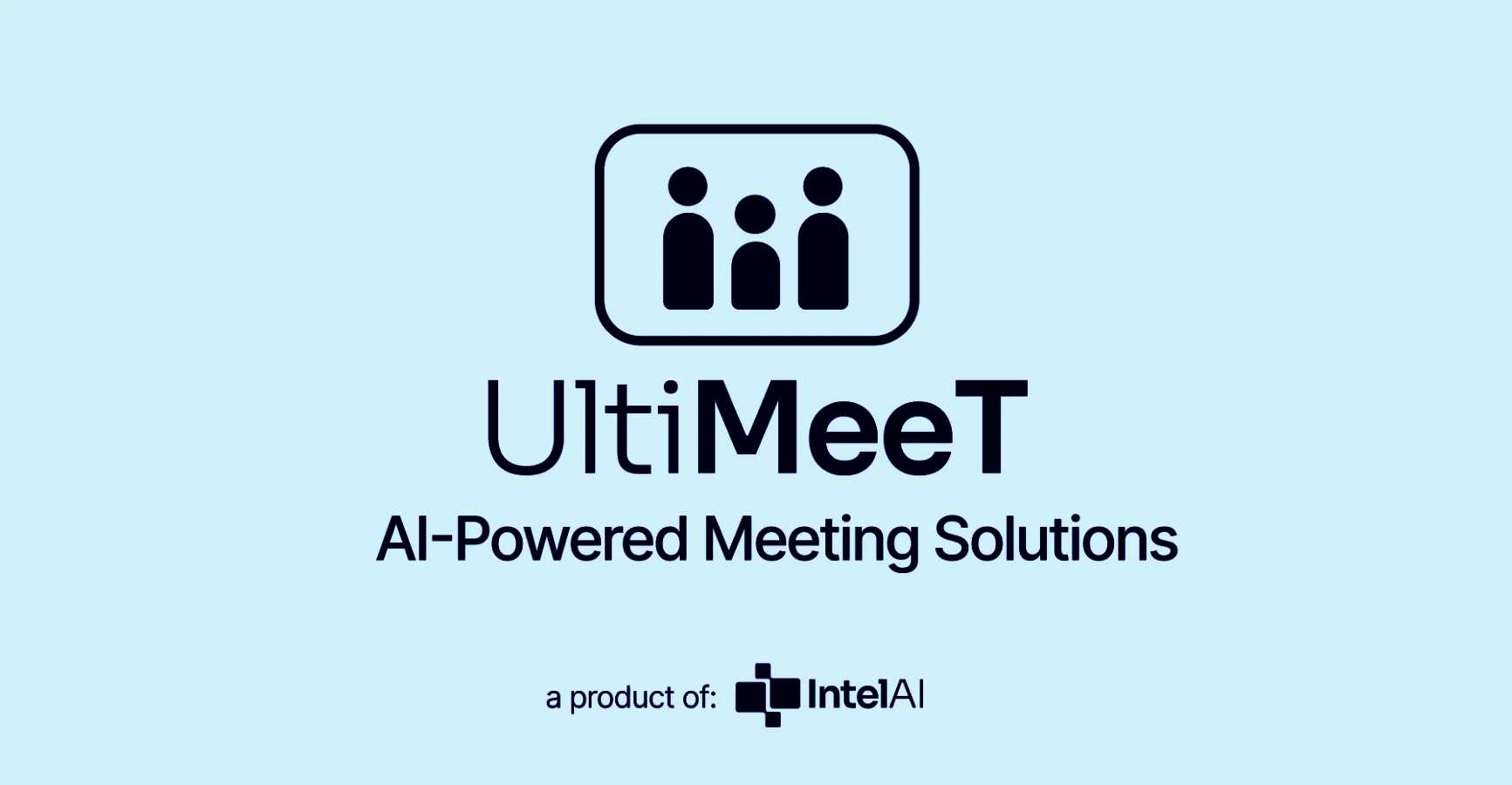Yes, quantum computing software can be accessed from multiple devices and platforms. This is owing to the nature of quantum computing, which uses qubits rather than classical bits. As long as a device meets the hardware and software criteria, it can access and run quantum computing applications. In fact, many quantum computing software packages are built to work with a variety of devices and platforms, making them available to a large range of consumers.
List of Best Quantum Computing Software
SILQ, the top Legal Practice Management Software, is designed to enhance efficiency and boost revenue for your legal practice. Created by an Australian company, we provide thorough assistance to ensure you get the most out of your investment. Select...Read More SILQ
BQSKit is a tool for optimizing quantum circuits and maximizing performance. This intuitive quantum compiler framework provides researchers with a user-friendly interface and advanced algorithms to enhance their quantum computing processes. Stay ahea...Read More BQSKit
Intel Quantum Simulator is a software solution for simulating quantum circuits and algorithms. Its advanced capabilities enable seamless exploration of quantum computing concepts, rigorous testing of quantum code, and efficient optimization of quantu...Read More Intel Quantum Simulator
LIQUiD is the software that is transforming the industry with its cutting-edge technology. Our platform offers unparalleled solutions that streamline operations and drive progress for businesses in a constantly evolving market. With LIQUiD, experienc...Read More LIQUiD
QX Simulator is a training platform that delivers an immersive learning journey. It boasts of lifelike simulations, adaptable scenarios, and immediate evaluation, resulting in enhanced decision-making abilities and honed skills. This tool is ideal fo...Read More QX Simulator
Quantum Inspire is a versatile and all-inclusive platform specifically created for the development, implementation, and analysis of quantum algorithms. With its vast array of simulation capabilities and direct access to authentic quantum hardware, it...Read More Quantum Inspire
Quantum Programming Studio - an advanced software designed to simplify quantum coding. Boasting a user-friendly interface, built-in error detection, and comprehensive tutorials, our program is ideal for beginners and experts alike, making quantum com...Read More Quantum Programming Studio
Superstaq, a software that enables you to easily code quantum programs in any programming language and execute them on any quantum computer. No prior knowledge of quantum physics required. With Superstaq, enjoy up to 10x faster performance. Join our...Read More Superstaq
Bayesforge is a and trusted software known for its exceptional performance across multiple industries. Its track record of reliability and consistency has made it a preferred choice among professionals who need accurate and powerful data analysis sol...Read More Bayesforge
DataRobot is revolutionizing the AI industry with its comprehensive platform that simplifies deployment, reduces costs, and enhances scalability. Trusted by leading companies, it empowers teams to drive innovation and achieve significant business out...Read More DataRobot
AppliDis Fusion - a virtualization solution that streamlines application and desktop access for users. With its intuitive user interface and top-notch security features, AppliDis Fusion provides a secure and efficient remote working environment. Revo...Read More AppliDis Fusion
Energizer - a state-of-the-art, AI-driven solution specifically created to streamline the functionality of commercial buildings. This cutting-edge software seamlessly integrates with current systems to utilize predictive capabilities, thereby optimiz...Read More Energizer
Covalent is an advanced AI computing platform that simplifies the development, deployment, and growth of AI applications. It offers effortless access to a diverse range of hardware and cloud resources, significantly improving infrastructure utilizati...Read More Covalent
UltiMeeT, developed by IntellAI, is a platform that harnesses the power of AI and Quantum technology. Through the use of advanced algorithms and deep learning methods, IntellAI empowers businesses to improve their operations and boost productivity. T...Read More UltiMeeT
TensorFlow is an open-source platform that simplifies the creation and deployment of machine learning models in various environments. Its user-friendly APIs, pre-trained models, and support for mobile, edge, and browser-based applications make it a p...Read More TensorFlow
Learn More About Quantum Computing Software
- What Is Quantum Computing Software?
- What Are The Recent Trends In Quantum Computing Software?
- Benefits Of Using Quantum Computing Software
- Important Factors To Consider While Purchasing Quantum Computing Software?
- What Are The Key Features To Look For In Quantum Computing Software?
- Why Do Businesses Need Quantum Computing Software?
- How Much Time Is Required To Implement Quantum Computing Software?
- What Is The Level Of Customization Available In Quantum Computing Software?
- Which Industries Can Benefit The Most From Quantum Computing Software?
- Conclusion
What Is Quantum Computing Software?
Quantum Computing Software refers to computer programs and algorithms built to run on Quantum Computers, a powerful technology that uses quantum mechanics principles to execute calculations at speeds and scales that ordinary computers cannot match. This innovative technology has the potential to transform a variety of industries, including finance, healthcare, and cybersecurity.
Quantum computing software is required to fully utilize the potential of quantum computers. It offers a simple interface for developers and researchers to build, test, and optimize algorithms for quantum computers. The program also facilitates the integration of quantum computers into existing computing infrastructure, providing for a smooth transition into the world of quantum computing.
One of the important elements of Quantum Computing Software is its capacity to handle qubits, which are the fundamental units of information in quantum computing. Qubits, unlike typical binary bits, can exist in many states at the same time, resulting in a considerable gain in computing capacity. Quantum computing software manipulates and controls qubits using advanced algorithms, allowing difficult problems previously thought to be intractable to be solved. Quantum computing software is classified into several forms, including simulators, quantum development kits, and programming languages.
These tools enable users to build and test quantum algorithms while also providing a platform for cooperation and knowledge sharing within the quantum computing community. When purchasing Quantum Computing Software, compatibility, user-friendliness, and support services are all important considerations. To assure reliability and quality, consider the software provider's reputation and track record.
What Are The Recent Trends In Quantum Computing Software?
Quantum computing software has grown in prominence in recent years, owing to its potential to change industries such as machine learning, cryptography, and scientific research. As a result, new software and tools tailored exclusively to quantum computing have emerged at a rapid pace.
Let's explore, we'll look at the latest trends in quantum computing software that prospective customers should be aware of.
1. Increased Emphasis On Open-Source Software: One of the most recent trends in quantum computing software is the proliferation of open-source tools and platforms. Several organizations and research institutions have chosen to make their quantum computing software open-source, enabling community participation and innovation. This trend not only improves transparency and fair access to resources, but also accelerates the development of quantum computing software.
2. Integration With Classical Computing: Because quantum computing is still in its early stages, most applications will necessitate a combination of classical and quantum computing to produce optimal results. As a result, there has been a shift towards building software that can seamlessly merge classical and quantum systems. This enables for more practical applications and a smoother transition to quantum computing technology.
3. User-Friendly Interfaces: In the early days of quantum computing, the software was largely designed for skilled computer scientists and researchers. However, as quantum computing gains traction in a variety of industries, there has been a move toward the development of user-friendly interfaces and tools. This development has made quantum computing more accessible to consumers and businesses that lack a solid foundation in computer science or mathematics.
4. Focus On Simulation And Error Correction: Because of the fragile nature of quantum systems, errors can occur during computations, resulting in incorrect conclusions. As a result, there has been a greater emphasis on designing software to simulate and rectify faults in quantum computing. This tendency is critical to make quantum computing more dependable and robust, resulting in increased trust and acceptance of the technology.
5. Cloud-Based Quantum Computing Platforms: Another trend in quantum computing software is the creation of cloud-based platforms for quantum computing. These systems enable customers to access quantum computing resources remotely, removing the need for costly hardware investments. Furthermore, cloud-based platforms offer scalability and flexibility, allowing businesses to experiment and build quantum applications without major financial investment.
Benefits Of Using Quantum Computing Software
Quantum computing is an emerging technology with the potential to transform industries around the world. Its ability to handle enormous amounts of data and solve complicated issues at unprecedented speeds makes it a popular tool among businesses, researchers, and governments. However, the power of quantum computing can only be realized through the use of specialized software.
Here are some of the major advantages of adopting quantum computing software:
1. Faster Processing And More Accuracy: Traditional computers use a binary system, with bits representing 0 or 1. In contrast, quantum computers make use of quantum bits, also known as qubits, which can represent many states at the same time. This enables quantum computing software to process massive volumes of data at considerably quicker speeds while maintaining great accuracy. This is especially useful for applications like optimization, modeling, and data analysis, which require processing billions of data points in a short period of time.
2. Access To Complex Algorithms: One of the most significant benefits of quantum computing software is its capacity to run advanced algorithms that are just not possible on conventional computers. These algorithms are intended to tackle complicated issues like prime factorization, optimization, and machine learning significantly more quickly, making them useful tools for corporations and researchers.
3. Solving Real-World Problems: Quantum computing software has the ability to solve some of industry's most pressing problems, such as logistics optimization, drug discovery in the pharmaceutical sector, and financial risk analysis. Businesses can gain a competitive advantage by leveraging quantum computing to create more efficient operations and make better-informed decisions.
4. Scalability: Quantum computing software is extremely scalable, which means it can handle more data and solve larger and more complicated problems without losing speed or accuracy. This makes it a perfect tool for firms dealing with large amounts of data or working on projects that demand a lot of computational power.
5. Cost-Effectiveness: While quantum computers are pricey, quantum computing software is relatively inexpensive and accessible. Businesses may now harness the power of quantum computing without investing in pricey hardware, thanks to the availability of cloud-based platforms. This makes it an affordable choice for organizations of all sizes.
Important Factors To Consider While Purchasing Quantum Computing Software?
When considering acquiring quantum computing software, consumers should keep three key issues in mind.
These variables will help them choose the best software to match their individual requirements and ensure a successful implementation.
1. Computing Power And Capabilities: One of the most important elements to examine is the computing power and capabilities of the software. Quantum computing software should be capable of handling complicated calculations and algorithms, as well as supporting a variety of quantum programming languages, including Q#, PyQuil, and Quil. It is critical to evaluate the software's speed and accuracy to verify that it meets your business needs.
2. Compatibility: is critical while selecting quantum computing software. It should work with your existing hardware and infrastructure. It should also effortlessly interact with your existing workflows and systems. This eliminates any potential compatibility difficulties and ensures a smooth installation.
3. User-Friendly Interface: An intuitive and user-friendly interface is critical for the effective adoption and use of quantum computing software. It should be simple to use, with clear instructions and customer service options. A user-friendly design will also help people learn faster and become more productive.
4. Security: Given the delicate nature of the data and information handled by quantum computing software, security is an important consideration. To protect against cyber threats and maintain data integrity, the software should include strong security features such as encryption and secure data transfer.
5. Scalability: It is critical to address the scalability of quantum computing software. As your company expands and your computer requirements change, the software should be able to adapt accordingly. This ensures that your investment will suit your long-term needs.
6. Cost: When purchasing quantum computing software, cost is an important issue. To assess whether it fits within your budget, consider the entire cost of ownership, which includes license fees, maintenance, and training. Furthermore, assess the software's ROI and whether it is worth the investment.
7. Customer Support: Finally, confirm that the software vendor provides dependable and timely customer service. This will be crucial during the implementation phase and if any technical challenges develop. It is also a good idea to look for any accessible training or resources to help you use the software to its full potential.
What Are The Key Features To Look For In Quantum Computing Software?
When selecting quantum computing software, it is critical to evaluate many essential features to guarantee you get the best solution for your requirements. Quantum computing is a fast expanding field, and the software you choose can have a significant impact on the success of your projects.
To make an informed decision, below are the important elements to look for in quantum computing software:
1. Quantum Programming Language Support: The first and most significant factor to evaluate is the programming language support provided by the software. There is no standard programming language for quantum computing because the technology is still in its early phases. Make sure the software supports popular languages such as Q#, Python, and C++ so you may work in your preferred language.
2. Scalability: Scalability is another important consideration, particularly if you intend to utilize the program for complicated and large-scale simulations. The program should be able to manage a high number of qubits and scale with the complexity of your applications.
3. Algorithm Libraries: Quantum computing software should provide a collection of pre-built quantum algorithms. This will save you time and effort while developing the algorithms from scratch. Look for software that includes a diverse set of algorithms for various use cases and applications.
4. Simulation Capabilities: Because quantum computers are still very expensive and difficult to get, it is critical to select software that provides precise and trustworthy simulation capabilities. This allows you to test and enhance your algorithms without requiring a hardware quantum computer.
5. User-Friendly Interface: Quantum computing can be difficult and daunting, particularly for novices. Look for software with a user-friendly interface, which will allow you to interact with the software and construct quantum applications without requiring a high learning curve.
6. Platform Compatibility: The software you select should be compatible with the hardware and operating system you're running. Before making a purchase, ensure that it is compatible with your system.
7. Technical Support: As with any software, technical malfunctions and bugs may occur. Choose software that includes dependable technical assistance and regular upgrades to ensure smooth operation and prompt resolution of any problems that may develop.
When selecting quantum computing software, consider these essential aspects to make an informed purchase that suits your objectives and allows you to exploit the power of quantum computing for your projects. Remember to study reviews and get advice from other users in the sector while selecting the best software for your individual needs.
Why Do Businesses Need Quantum Computing Software?
Quantum computing software has received a lot of interest in recent years because of its ability to handle difficult issues that are beyond the capabilities of ordinary computers. This cutting-edge technology leverages quantum physics principles to execute calculations at exponential speeds, making it a game changer for enterprises of all sizes.
Here are some convincing reasons why organizations want quantum computing software.
1. Superior Processing Power: Quantum computers can process massive volumes of data at millions of times the speed of regular computers. This means that firms may solve complicated problems and make data-driven choices in a fraction of the time required by traditional computer approaches.
2. Address Complicated Problems: Many sectors have difficult problems that cannot be solved using standard computers due to their limited processing capability. Businesses may address these issues full on with quantum computing software, gaining significant insights that can be used to inform their strategies and decision-making.
3. Embrace Innovation: Because quantum computing is still in its early phases, implementing quantum computing software enables organizations to stay ahead of the curve and embrace innovation. Businesses who invest in this cutting-edge technology might obtain a competitive advantage and differentiate themselves from their competition.
4. Simulate Real-World Scenarios: Quantum computing software may also imitate real-world scenarios, allowing businesses to evaluate and enhance their products or services without the expense and time required for practical trials. This not only saves firms time and money, but also improves accuracy and efficiency in the R&D process.
5. Enhanced Security: Quantum computing also provides superior security when compared to regular computing approaches. Because quantum computers employ quantum entanglement and superposition to process data, they are essentially unhackable, making them an essential tool for enterprises dealing with sensitive and confidential information.
How Much Time Is Required To Implement Quantum Computing Software?
Introduction: Quantum computing software has gotten a lot of interest in recent years because of its potential to change a variety of fields. However, creating quantum computing software can be a difficult and time-consuming task. In this buyer's guide, we'll look at how long it takes to deploy quantum computing software and how different factors can effect the timeframe. Timeline for implementing quantum computing software: The timescale for building quantum computing software varies based on a number of factors, including the software's complexity, the team's experience, and the level of customization necessary.
Implementing quantum computing software can take anything from a few months to a few years. Factors affecting implementation time:
1. Software Complexity: Quantum computing software is extremely complicated, requiring specific knowledge and abilities to design and incorporate into existing systems. Implementing more complicated software may take longer.
2. Team Experience: The timeline is also heavily influenced by the team's experience with the implementation. A team with prior experience developing quantum computing software may be able to build it more efficiently than a team without any experience.
3. Customization Requirements: If the quantum computing software must be tailored to specific business requirements, the installation procedure may take longer. Customization can include modifying the software's algorithms, user interface, or integrating it with other systems.
4. Integration With Existing Systems: Adding quantum computing software to existing systems can be time-consuming. It requires full integration with existing gear and software, which could take some time to complete.
5. Testing And Debugging: As with any software, testing and debugging are critical stages in the implementation process. The complexity of quantum computing software can make it much more difficult and time-consuming to develop.
What Is The Level Of Customization Available In Quantum Computing Software?
Quantum computing software is a rapidly expanding field that has enormous potential for solving complicated issues and providing new insights in a variety of sectors.However, with so many quantum computing software options available on the market, customers may be concerned about the level of personalization they may expect from these software solutions. The level of customisation accessible in quantum computing software varies based on the unique software and its intended application. Some software may provide a high level of customization, but others may have little possibilities.
Let's take a closer look at the different levels of customisation available with quantum computing software.
1. Algorithm Customization: One of the most important aspects of quantum computing software is the algorithms it utilizes to solve complicated issues. Buyers should search for software that allows them to customize algorithms based on their individual demands. This can include improving existing algorithms or developing new ones from scratch. The flexibility to customize algorithms can result in more efficient and accurate results.
2. Hardware Compatibility: Quantum computers are still in their early stages of development, hence their hardware capabilities can vary greatly. This means that not all quantum computing software will work with all quantum computers. Buyers should carefully consider the software's compatibility with their unique quantum hardware, as well as the extent of customization available for hardware integration.
3. Platform And User Interface Customization: The platform and user interface have a significant impact on the software's usability and functionality. Some quantum computing software may have a general interface, while others may allow customers to modify it based on their needs. Buyers should examine the level of customisation available for the platform and user interface to provide a smooth and user-friendly experience.
4. Data Input And Output Customization: Data input and output procedures are critical for every software, including quantum computing software. Buyers should seek for software that allows them to customize data inputs and outputs, such as format, precision, and transfer methods. This is particularly crucial in data-intensive areas like finance and healthcare.
Which Industries Can Benefit The Most From Quantum Computing Software?
Quantum computing software is a rapidly emerging technology with the potential to transform many industries. This program, which harnesses the power of quantum mechanics, can do sophisticated and large-scale calculations that ordinary computers cannot.
As a result, it provides considerable benefits and optimizations for businesses requiring great computing power.
1. Financial Services: Data analysis and forecasting are key decision-making tools in the financial business. Quantum computing software can handle massive datasets, find complicated patterns, and conduct risk analysis in a fraction of the time it takes ordinary computers. This makes it perfect for financial firms that work with large amounts of real-time data, such as stock trading, portfolio management, and fraud detection.
2. Healthcare: The healthcare business generates enormous volumes of data through patient records, medical imaging, and drug research. Quantum computing software can help evaluate this data to uncover trends and generate precise predictions, which can aid in disease detection and treatment. This software's ability to execute complicated simulations can also help in the creation of novel pharmaceuticals and treatment approaches.
3. Transportation And Logistics: The transportation and logistics industry processes massive volumes of data, including route optimization, supply chain management, and vehicle tracking. Quantum computing software can process this data and propose effective solutions, resulting in cost savings and faster delivery times. It may also assess traffic patterns, weather forecasts, and other variables to improve transportation efficiency.
4. Energy And Utilities: The energy and utilities industries can profit from quantum computing software in a variety of ways. It can assist optimize power grids, increase energy efficiency, and promote renewable energy development. It can also process data from multiple sources to forecast demand and better control energy prices.
5. Materials Research: Simulation of atomic and subatomic structures using quantum computing software has the potential to revolutionize materials research. This has the potential to dramatically expedite the discovery and development of novel materials with unique features. It can also help with predictive maintenance on industrial equipment and structures, saving time and costs.
Quantum computing software can aid a variety of industries, including aerospace, manufacturing, and cybersecurity. As this technology advances, it has the ability to alter multiple industries and tackle some of the world's most complicated issues.
Conclusion
To summarize, investment in quantum computing software can give significant benefits to corporations and organizations across multiple industries. Quantum computing has the ability to solve difficult problems at unprecedented speeds, revolutionizing industries such as banking, healthcare, and logistics. However, buyers must carefully analyze their individual requirements and select software that is in line with their aims and budget.
When evaluating quantum computing software, customers should consider the quantum computing technology employed, the level of scalability, and the user interface. They should also examine the availability of support and resources, as well as the software's security features. Furthermore, customers should be aware of quantum computing's possible constraints, such as the current scarcity of available infrastructure and skill, as well as the high cost of implementation.
Businesses should undertake rigorous study and speak with experts before investing in quantum computing software. In the fast evolving field of quantum computing, it is critical for customers to select software from trustworthy and established vendors with a demonstrated track record. They should also evaluate the software's future development and improvements.
Finally, investing in quantum computing software necessitates careful deliberation and an in-depth understanding of the subject. Businesses can use the capabilities of quantum computing to gain a competitive advantage and promote innovation in their sectors.
Quantum Computing Software FAQ's
Can Quantum Computing Software Be Accessed Across Multiple Devices And Platforms?
Is Quantum Computing Software Future-Proof And Adaptable To Emerging Technologies Like AI, Blockchain Or IoT?
Yes, Quantum Computing Software is regarded as future-proof and highly adaptable to new technologies such as AI, blockchain, and IoT. This is because quantum computers are known for their capacity to conduct complicated and large-scale computations, making them ideal for these cutting-edge applications.
Furthermore, quantum computing methods are easily tweaked and improved for individual applications, making them responsive to the ever changing technological landscape. As these future technologies evolve, quantum computing software will become even more important and in demand.
Is There A Free Trial Offered To Assess Quantum Computing Software Before Committing?
Yes, many organizations that provide quantum computing software offer a free trial period in which users can evaluate the program before committing. This enables potential customers to evaluate the product and its features before making a purchase, ensuring that they make an informed choice.
Some companies provide a brief free trial with rudimentary capabilities, while others offer a lengthier trial with full access to all functions. It is critical to check with the company for detailed information on their free trial offer.
Does Quantum Computing Software Offer Data Security Features And Meet Regulatory Compliance Standards?
Yes, quantum computing software includes advanced data security safeguards and adheres to regulatory compliance norms. Its robust encryption capabilities and ability to process enormous amounts of data provide data privacy and protection.
In addition, the software adheres to tight rules and guidelines to ensure compliance with legislation such as the General Data Protection Regulation (GDPR) and the Health Insurance Portability and Accountability Act (HIPAA). This guarantees that sensitive data is protected and compliant with industry requirements.
Can Quantum Computing Software Integrate Seamlessly With Existing Tools And Platforms?
Yes, Quantum Computing Software is intended to integrate effortlessly with existing tools and platforms. It can integrate with programming languages like Python and use popular frameworks like TensorFlow.
Quantum computing software is also compatible with cloud computing platforms and can be readily integrated into current infrastructure. This facilitates a smooth transition for organizations and researchers seeking to harness the capabilities of quantum computing without disturbing existing systems and procedures.

















